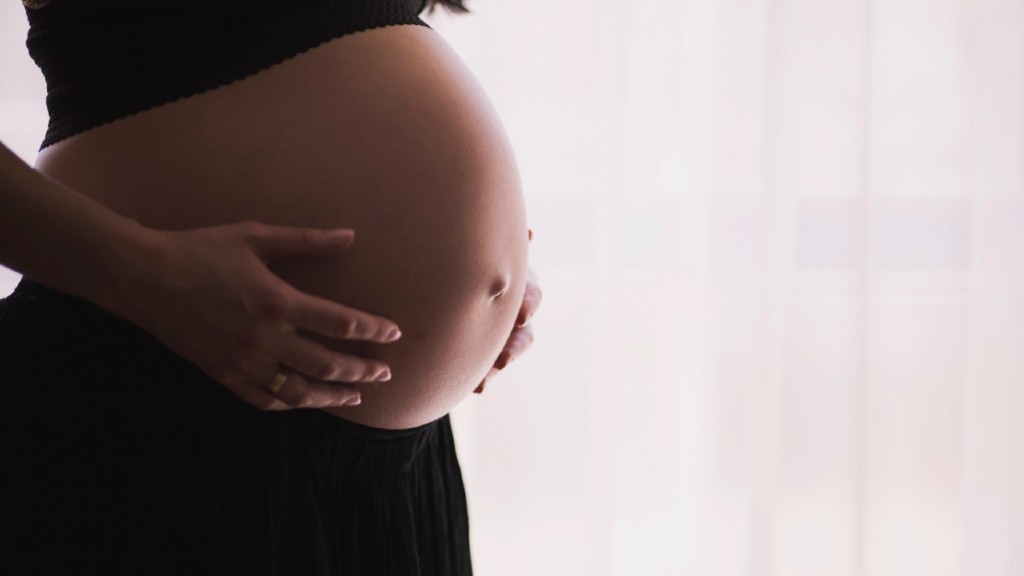Pregnancy and COVID-19: study indicates increased risks in cases contracted during the third trimester of pregnancy
Coronavirus antibodies were detected in 14% of the pregnant women testedUOC course instructor and tutor Elisenda Bonet-Carne heads up research project to study the effects of COVID-19 in pregnancy

Although the elderly were initially the population group most affected by the COVID-19 pandemic, children and pregnant women have also been added to the list of groups most at risk of contracting the disease or exhibiting more serious symptoms. According to a study conducted by the BCNatal Fetal Medicine Research Center research group, headed up by Eduard Gratacós, with the participation of Universitat Oberta de Catalunya (UOC) University Master's Degree in Data Science course instructor and tutor, Elisenda Bonet-Carne, the risk of pregnant women developing complications when infected with COVID-19 increases during the third trimester compared to the first trimester.
This is the preliminary conclusion of the analysis of the nasopharyngeal and blood samples collected from more than 6,000 women – 3,000 pregnant women and 3,000 non-pregnant women – and other relevant data regarding the symptoms, medical history and pregnancy of each of the subjects. Blood samples were also collected from the babies of those mothers who tested positive for COVID-19.
The research group is now carrying out further investigation to examine the symptoms presented and subsequent immune responses. Bonet-Carne said: "According to our preliminary findings, 14% of the 874 pregnant women sampled tested positive for coronavirus antibodies. The majority of those cases had been asymptomatic and many of the women only discovered they had contracted COVID-19 as a result of having the test."
The scientific manager of the BCNatal Fetal Medicine Research Center outlined the fact that the project also aims to identify whether other "factors related to maternal nutrition, stress or microbiomes play a part in influencing susceptibility to contracting COVID-19 and the severity of infection in pregnancy," as these aspects have previously been found to have a significant impact in relation to other respiratory infections. Despite this, the working group has stressed that, in general, pregnant women experience mild symptoms in line with those recorded for the non-pregnant group, although they have pointed out that there is a "higher risk" for pregnant women who contract the illness in their third trimester.
The study found that pregnant women are "particularly vulnerable in terms of collateral damage", i.e. the long-term social, economic and welfare consequences. As such, the team is "joining forces at local and international level to carry out the necessary studies" in order to identify these impacts.
The research group responsible for conducting the study, made up of researchers from Hospital Clínic de Barcelona, Hospital Sant Joan de Déu and the University of Barcelona, with support from Hospital de Sant Pau, forms part of the Kids Corona platform, which aims to understand the effects of COVID-19 in pregnancy and children. As such, they are also studying the transmission of the new coronavirus from mothers to children. Although they do not yet have any conclusive answers, Bonet-Carne explained that the BCNatal researchers are working to find out more "by analysing the consecutive pregnancies and neonatal outcomes associated with these pregnancies", emphasizing the fact that "few cases have currently been reported in other published studies".
Artificial intelligence: an indispensable tool
BCNatal is using artificial intelligence methods in this project, a technology it has been working with for some time now. In fact, the entity works closely with data scientists from the Applied Data Science Lab (ADaS), affiliated with the UOC's Faculty of Computer Science, Multimedia and Telecommunications on a range of innovative and transdisciplinary projects. As the unit's chief researchers, Jordi Casas-Roma and Ferran Prados, explained, "artificial intelligence has been used to help with patient diagnosis" during the pandemic.
Prados said: "Artificial intelligence makes it possible to diagnose diseases and create algorithms adapted to other situations." An online survey has, therefore, also been launched to support the study in which Bonet-Carne is involved, aimed at all pregnant women, whether they have the virus or not. The researchers hope to collect data from 10,000 women, which they will then analyse using "artificial intelligence techniques to study the effects that stress, anxiety, socioeconomic and environmental factors, pollution and other aspects have in terms of risk".
With a view to future pandemics, Casas-Roma and Prados explained that "the algorithms that have been applied in COVID-19 have been used previously in relation to other illnesses, a fact that demonstrates the potential of the research for transfer and future application, with adaptations, to any pandemic to come". They conceded, however, the need "to see the limits imposed in terms of ethics and privacy in order to promote responsible artificial intelligence that safeguards society and prevents excessive individual control".
Casas-Roma outlined the team's most recent challenge, which involves the development of a "system that facilitates rapid detection, which will help doctors and speed up the rate of response for future pandemics". As Prados went on to explain, this system seeks to create a "single access point" for medical professionals, on which the medical imaging for patients can be uploaded "to enable the system to automatically detect the type of image, the quality and, from there, determine the neuronal network that best fits the input data".
Experts UOC
Press contact
-
Editorial department
